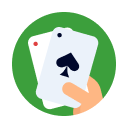Okay, I have not even begun to master this but I'll pass on what I thought was gold from some pros.
#1 - Don't go crazy trying to pay attention to everyone at the table. The two guys you will most likely want to make a move on are the two to your left. The two guys most likely to make a move on you are the two guys to your right. Start there. Find out if you can or should be making a move on these guys. Find out if those other guys are capable of making a move on you. IE, the button raises big on your BB. Do you give him respect or do you call him down or even raise with K9? You won't know if you haven't invested some time in him.
#2 - Start with identifying styles - Tight? Loose? Passive? Aggressive? Will they fold to a 3 bet? Do they feel compelled to call. Are they compelled to see a flop way too many times?
#3 - Identify how much they are paying attention to the rest of the table. This is huge because you can identify players who are just playing their hands and probably not thinking about what another player might be playing (until it's too late). If they are looking at their preflop hand well ahead of their turn then they are not paying attention to anyone else. If they are not looking at other players when the flop comes then they are not paying attention to anyone else. - BTW, a note here for you - do not look at your hand until the action is on you for 2 reasons - 1) You need to focus on everyone else and not your hand (it's not going anywhere) and 2) If you look at your hand and it's not playable then your interest in what everyone else is doing goes to zero since you are not playing.
If you find a guy who is not looking at the flop but at his opponents - well that's a sign of someone who knows what they are doing (or at least trying to). Be wary of that guy and find out if he might be someone to avoid if you can.
One thing I am doing now is identifying the guy or guys that I think I will have to go through to get to the final table. He is usually the guy with all the chips and I will not be able to afford a mistake against him - but I still do want him heads up because he can double me up.
As far as a preflop plan goes - it is determined by what you are finding out. Sometimes it is as easy as "The next time everyone folds to me on the button I'm going to put out a big raise with ATC - because I can."
Sometimes it's "I have got to get in hand with this guy becuase I know he will fold to a reraise on the flop."
And it can even be "I am not going to get involved in hand with that guy - I have no idea what he's doing and he's got me totally perplexed."
Now you notice a lot of this is not physical
tells. Get a Joe Navarro book and start studying. And again, don't try to learn them all at once. Grab two or three and work them at the table for a while before getting a new set to work.










